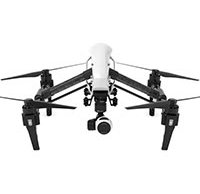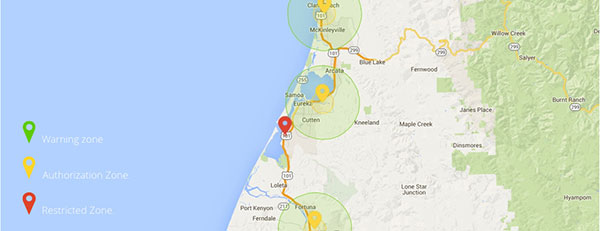Fly with caution: DJI increasing restrictions on where customers can fly their drones
posted Thursday, July 7, 2016 at 7:13 AM EDT

If you've used a DJI drone, then you're likely familiar with the company's geofencing system, which is designed to help owners keep their drones clear of restricted airspace. DJI has updated their system to make it more restrictive, or as they put it, safer.
The new system, Geospatial Environment Online (GEO), is updated regularly to alter the areas that raise concerns, such as blocking off an area in the event of a natural disaster. It isn't clear who determines what areas become temporary restricted airspace, but a few possible situations are forest fires, important figures being in a particular area, and major sporting events.
By default, your drone will not be able to enter restricted areas. However, to temporarily unlock your drone and fly it into restricted areas, you will need a verified DJI account. Once verified, you will be able to plan up to 30 flights over a 72-hour period within restricted airspace. You are responsible for checking your flight plan against all laws and regulations. However, you will not be able to unlock your drone to enter areas which have been marked as areas relevant to national security, such as airports, for example.

As of now, 'GEO' works only with updated Phantom 3 and Inspire 1 products. DJI notes that "in general" they will not turn over any of your personal information or flight data to authorities, but they acknowledge that the information entered, including when and where you unlocked and operated your drone, in addition to your own personal information, can be handed over in the event of an investigation. The requirements for DJI to deliver your information to authorities varies by country, but in the United States a subpoena, warrant or court order will be necessary.
I'm sure that most people own and operate their drones responsibly, but as incidents continue to occur through the misuse of unmanned aerial vehicles, the restrictions are increasing too.
(Seen via Fstoppers and DIY Photography)